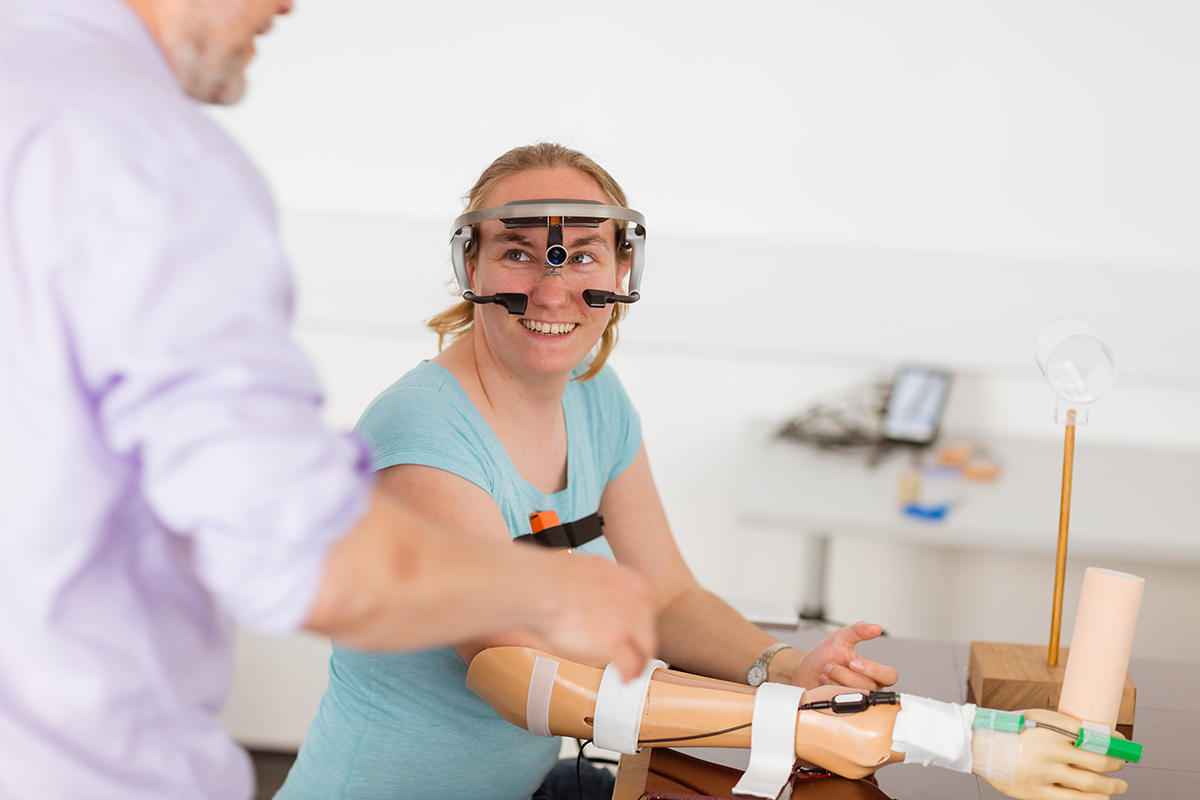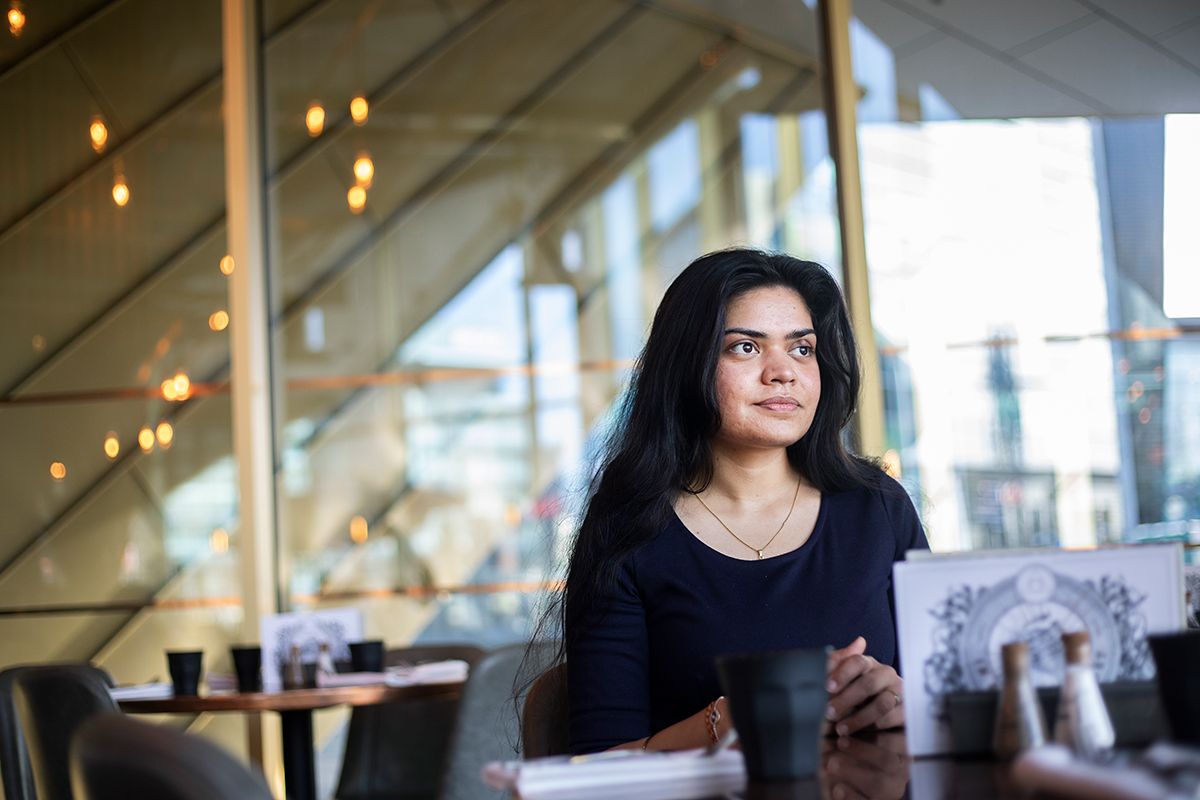Case studies
Hear from current and previous postgraduate research students to find out what life is like as a researcher at the University of Salford.
Business, Management and Law
Muktar Bello completed his PhD at Salford Business School where he investigated cybercriminals in Nigeria. Before starting his studies, Muktar tackled economic and financial crimes as a law enforcement officer in a renowned Nigerian law enforcement agency.
As part of his studies, Muktar participated in conferences and doctoral symposiums. He presented papers during the annual UK Academy of Information Systems (UKAIS) in Oxford, as well as being invited to present the findings of his thesis to the West Yorkshire Police Cyber Tactical Retreat in Wakefield, and to the Re-thinking Cybercrime conference.
Muktar has now returned to Nigeria and is working with the Economic and Financial Crimes Commission as a Senior Detective Investigator. He is responsible for tackling cybercrime and implementing the National Cybersecurity Strategy in Nigeria.
Arts, Media and Creative Technology
Winda Setia Sari completed her creative-critical PhD investigating second language poetry and mother-daughter relationships. At home in Indonesia, Winda works as a lecturer in English literature, having obtained government sponsorship to develop her research skills. Winda moved to the UK with her family, including her three young children, who attended school locally. Winda chose to study at the University of Salford because of our expertise in practice-based and hybrid modes of enquiry.
Reflecting on her experience at Salford, Winda said: “I flew thousands of miles from my home country, Indonesia, and found my second home at the School of Arts, Media and Creative Technology. Salford opened up new networks for me as an English literature teacher, contributing to my personal development and professionalism. My PhD journey has not been easy, but I will bring this fruitful academic experience back home to Indonesia."
Built Environment
Dr Dermot Kehily is a recent graduate of our professional doctorate programme. His research project focused on leveraging Building Information Modelling (BIM) to address the barriers that prevent the widespread adoption of life cycle costing by quantity surveyors.
Dermot is a lecturer at the Dublin Institute of Technology's School of Surveying and Construction Management, however, he decided to study at Salford because of our expertise in BIM and reputation for built environment research.
Reflecting on his experience, Dermot said: “The postgraduate research programme gave me a platform to research a topic in my field that I had an interest in for some time. Having an idea is a start, but the programme provided me with the tools and skills to carry out effective research and a structured path to achieve my goal. Progressing through the staged submissions and assessments provided a real sense of achievement, making the ultimate goal feel a little less onerous.
The vibrant research community in the school is particularly beneficial. I studied on the Professional Doctorate in Built Environment; we met for numerous workshop sessions where research skills were imparted by experienced researchers and past postgraduate students. This collaborative research environment gave me an opportunity to discuss my ideas with experienced researchers and other students of a similar professional background.”
Environment and Life Sciences
Ryan Joynson studied at the University of Salford for a PhD in Molecular Biology under a Graduate Teaching Studentship. Reflecting on his experience, Ryan says: “The supervision I received was second to none. I had daily meetings with my supervisors and as a result my research project was both enjoyable and successful, leading to an effective defence of my thesis and publications in reputable scientific journals. I am now a Postdoctoral Research Associate at the Centre for Genomic Research. The training I received provided me with a springboard into the research career I always wanted.”
Health and Society

Alix Chadwell is a post-doctoral researcher in prosthetics at the University of Salford. When she completed her PhD here, she was based in the Biomechanics, Biomedical Engineering and Human Movement Sciences research group.
Alix reflects on how she developed whilst completing her PhD: “My work ethic became much more structured. My confidence in presenting my work and in networking increased significantly. I learned how to put together a protocol and implement it. I also learned a lot about the NHS including the R&D processes, and had discussions with clinical engineers about equipment setups and how to collect my data.”

Dillon Newton is a final year PhD researcher working as part of the Sustainable Housing and Urban Studies Unit (SHUSU). He began his PhD research after being awarded the Pathways to Excellence scholarship. His research focuses on migration and ethnicity; urban and social inequalities; the relationship between identity, belonging and place; and theories and lay understandings of community.
As part of his studies, Dillon has participated in conferences and symposiums across Europe. He has presented his research at the University of Innsbruck in Austria, the British Sociological Annual Conference, and other doctoral workshops. Dillon says: "The postgraduate research programme has given me a space to explore my ideas around contemporary social issues, plus the tools and training to carry out effective research. My supervision and guidance has been excellent, and the collaborative research environment in the School of Health and Society has given me the opportunity to discuss my ideas in fruitful and productive ways with experienced researchers and postgraduate peers."
Computing, Science and Engineering

Neha Sharma is a Knowledge Transfer Partnership (KTP) Associate, working as a Product Development Engineer at COSMOTEC, a non-woven textile manufacturing company. The KTP is between COSMOTEC and the University of Salford, where Neha is completing her PhD. Neha's research project will provide COSMOTEC with the tools and capability necessary to develop bespoke, cost-effective, sound-absorbing products with a variety of practical applications. This research is critical to COSMOTEC’s long-term growth strategy as they seek to position themselves as technology leaders in the non-woven textile manufacturing sector. Neha – who completed her bachelor’s degree in India – first studied at the University of Salford as a master’s student. “When reviewing my options, I quickly realised that the Acoustic Research Centre at University of Salford was where I wanted to contribute. I successfully completed my master’s by research degree under the supervision of Professor Andy Moorhouse and Dr Olga Umnova, who played a pivotal role in sharpening my fundamentals and problem solving skills. Under their guidance, I have now stepped into my PhD program alongside the KTP. My lab-mates and colleagues at Salford are true enthusiasts, encouraging and helping me, and contributing to a hard-working and welcoming ambience. As an engineer, I have always had the urge to contribute towards the common good of society. Now through my KTP, I feel equipped to take up new challenges. The KTP concept of bridging the gap between academia and industry motivates me to continue onto this journey. With my specialisation in acoustics, particularly catering to the needs of technical textiles, I aspire to thrive in this industry.

